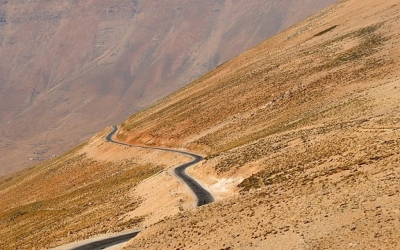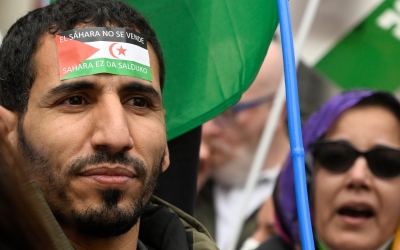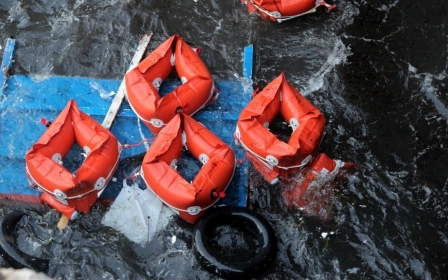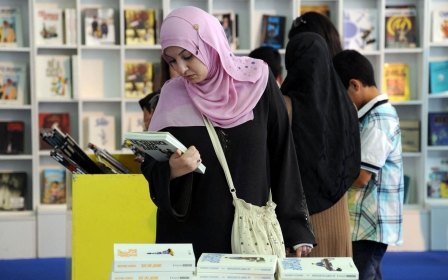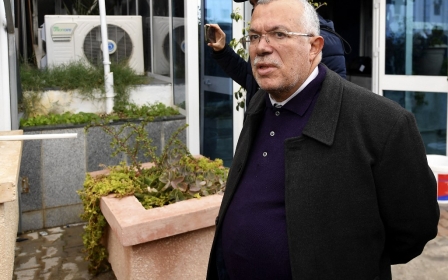High hopes as Algerian tourists return to Tunisia after two years of border closure
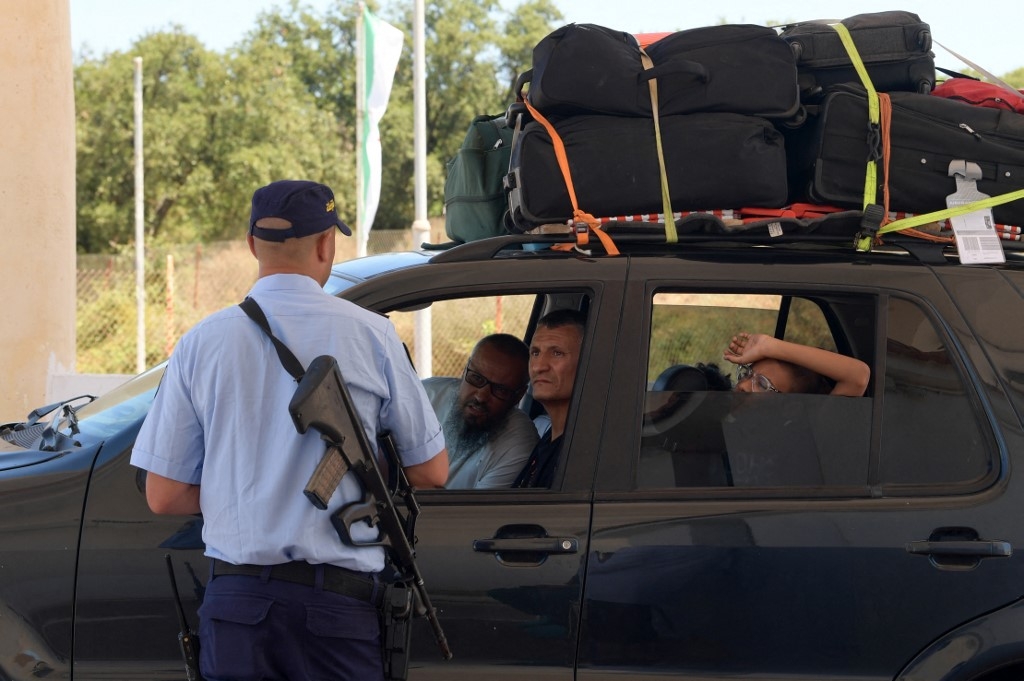
In the back office of his travel agency in rue Belouizdad in Algiers, Mohamed reviewed one last time the list of his clients who were about to cross the Algerian-Tunisian border.
The reopening of the land border that had been closed since March 2020 following the coronavirus pandemic, was announced on 5 July by Algerian President Abdelmadjid Tebboune in the presence of his Tunisian counterpart Kais Saied, on the occasion of the 60th anniversary of Algeria's independence.
'Since the reopening, we have been organising the departure of one bus per week with 50 passengers on board'
- Mohamed, Algerian travel agent
The decision came into effect on 15 July, and since then more than 60,000 Algerians have visited Tunisia, according to a statement by the Tunisian Minister of Tourism, Mohamed Moez Belhassine.
“Since the reopening, we have been organising the departure of one bus per week with 50 passengers on board,” Mohamed told Middle East Eye excitedly.
"The number of travellers who book for Tunisia remains lower than the pre-Covid period, but it is picking up again."
According to the tour operator, several factors were dampening the momentum of the recovery.
“These include measures related to Covid-19 such as the health pass and the PCR test. But now that they have been removed by the Tunisian authorities, we expect more requests.”
Near Mohamed's office, Wissam, head of the Plein Soleil travel agency, was also organising a trip to Tunisia.
She suspected that another reason for the slow recovery could be the rumours circulating on social networks claiming that Algerian visitors were being poorly received in Tunisia.
“But these are just rumours, the feedback we've had from our customers proves the opposite.”
Enticing prices
Aicha was among the Algerian tourists preparing to cross the border for holiday.
“We booked as soon as the reopening was announced. We have been spending our vacations in Tunisia for several years now and we are excited to return after a two-year break,” said the 43-year-old mother and a civil servant in a public company.
Price was a major factor in choosing Tunisia as her family’s next holiday destination.
“Of course, prices have increased, but going on vacation in Tunisia is still cheaper than tourism in Algeria,” she laments. “Being able to travel by car also allows us to save money since the price of the plane ticket remains exorbitant.”
Some of the big cities in eastern Algeria, like Annaba or Constantine, are very close to the border with Tunisia.
For those living in the western part of the country, in particular the Oranais, they would need to first drive for 15 hours to the border before starting their vacation. But many were not phased by this little inconvenience.
“All destinations have become expensive for the average Algerian. Tunisia is also the case, but it remains more affordable than other countries that require a visa,” explained Djalel, owner of the La Caravelle travel agency in Oran.
Spain used to be the most requested destination for travellers from western Algeria. However, that was no longer the case due to the region’s migrant issues with Spain as well as France.
Since September 2021, France has tightened the visa requirements for applicants from Algeria, Tunisia, and Morocco, citing these three countries’ failure to take sufficient action to bring back their nationals living illegally in France.
In June, at least 23 people died when a large crowd attempted to cross into the Spanish enclave of Melilla in northern Morocco. The tragedy happened not long after the two countries mended relations as Madrid backed Rabat's autonomy plan for Western Sahara - reversing a decades-long policy of neutrality.
“Since the Schengen visa is more difficult to obtain now, and because of the diplomatic crisis with Madrid, more and more people from Oran are opting for Tunisia,” Djalel said.
Morocco, Algeria’s western neighbour, had also been a popular destination for Algerians. However, the country was no longer accessible since the rupture of diplomatic relations between Rabat and Algiers in August 2021.
Even before the severance of diplomatic ties, Morocco did not attract as many Algerian tourists as Tunisia, since the land border had been closed since 1994.
Algerian tourists in Tunisia particularly favour the seaside resorts of Sousse and Hammamet, as well as the holy city of Kairouan. And Tunisia’s decision to allow Algerians to cross the border again was generally seen as good news for its economy by the locals.
“We are not just talking about hotel owners and restaurants, but also small businesses that have suffered a lot from the pandemic,” Khaoula, a young teacher from Tunis, told MEE.
The country was rolling out the red carpet for Algerian visitors.
“Algerians are not subject to the obligation to book in advance. Some tourist agencies have even cancelled the reservations made by Tunisians in order to keep the exclusivity of their services to Algerians. In addition, they have been exempted from fines in the event of prohibited parking,” Khaoula said.
Late announcement
In 2019, nearly three million Algerians visited Tunisia. This year, the Tunisian authorities hope the number will hit one million before the end of the summer season.
This is an ambitious and optimistic goal, as the announcement of borders reopening came “very late”, according to one Tunisian hotel manager.
“If the announcement had been made in early June, we would have had a crazy season,” Hafedh Djerbi, of Aqua Terra Bahia Beach hotel company in Hammamet, told MEE.
In 2019, all of his customers were Algerian tourists. “This year, Algerians only fill 20 percent of our reception capacities,” he said.
However the entrepreneur also said he had not lost hope.
“Tunisia is not just a summer destination for our neighbours. We still hope to see them during the fall or for the holiday season.”
In addition to the tourism objectives, the reopening of the borders is a reason to rejoice "for other reasons”, according to Tunisian television journalist Jihane El Ouati.
“Tunisians were also impatient with a reopening, particularly for family and economic reasons. Because the Algerian visitor does not come empty-handed and leaves with full hands,” noted the journalist.
“[The Algerian visitor] brings things to resell in Tunisia, such as household appliances or tobacco, and returns to Algeria with other goods, which the traders take advantage of.”
This article was originally published in French.
Middle East Eye propose une couverture et une analyse indépendantes et incomparables du Moyen-Orient, de l’Afrique du Nord et d’autres régions du monde. Pour en savoir plus sur la reprise de ce contenu et les frais qui s’appliquent, veuillez remplir ce formulaire [en anglais]. Pour en savoir plus sur MEE, cliquez ici [en anglais].


